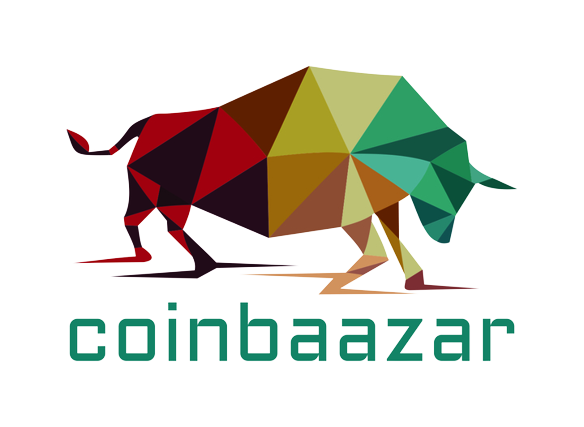Since the Internet’s initial popularity surge, numerous new job types have emerged. As more jobs are created, Bitcoin’s growth trajectory will mirror this trend.
How large can Bitcoin’s employment, infrastructure, and opportunities grow? Not “crypto” in general, only Bitcoin.
The Bitcoin network is expanding at a rate comparable to that of the internet.
We are well aware of the “monetary value” that this network possesses. As of this writing, the global market capitalization of Bitcoin is approximately $445 billion. What about the “employment value” that it can generate?
In 1999, there was no such position as an iOS engineer. If you conduct a simple search on LinkedIn, you will discover over 33,000 open positions with that title alone. These are available job openings, not the number of individuals already employed in that capacity. In 2002, there were no front-end React developer jobs. At the time of writing, you can find over 47,000 open positions on LinkedIn. Similarly, “AWS Engineer” did not exist in 2004. Now? 203,000 job openings. Where am I going with this?
A similar trend can be observed in the Bitcoin market. The positions of mining operations manager, wallet communications lead, and lightning infrastructure engineer did not exist in 2013. Nothing. There are currently dozens, if not hundreds, of these positions available.
How will these possibilities appear in 2038? Will a search on LinkedIn (or an equivalent) for “Lightning engineer” yield more than 10,000 results?
BREAKING DOWN BITCOIN SUB SECTORS AND POTENTIAL BITCOIN CAREER PATHS


Let’s investigate Bitcoin’s current sub sectors to identify future opportunities:
BITCOIN EDUCATION
We are still in the early stages. If Bitcoin is the Internet, then the year is 1997. People will look for informative content to help them understand what Bitcoin is and how to buy, sell, store, and do business with it.
Do you recall the 1990s, when people attempted to explain the significance of the internet? Remember when major news anchors were unfamiliar with email? Do you remember when Dave Letterman made fun of Bill Gates as he tried to explain what the internet was all about?
If you map Bitcoin onto the internet’s timeline, you’ll find that we’re at the exact same point; it’s essentially the same story. Because of this, people will need good communicators to explain what Bitcoin is and why it’s important.
Robert Breedlove, Lyn Alden, Michael Saylor, Natalie Brunell, and Jeff Booth are some of my favourite educators in this field.
BITCOIN MINING JOBS
Cathedra, Marathon, and Compass Mining are examples of mining businesses. Compared to other types of Bitcoin companies, the Bitcoin mining sector has the most public companies and the largest market capitalization.
Bitcoin mining has the potential to be the largest sub segment in terms of market capitalization and employee count, given that it requires a substantial amount of physical infrastructure and capital expenditure.
BITCOIN ENGINEERING JOBS
On top of the Bitcoin protocol, unforeseeable innovations will emerge. When the Defence Advanced Research Projects Agency engineers created the internet, were they able to foresee e-commerce and online dating? After creating the world’s first computer, was Alan Turing ever capable of predicting smartphones? Consider now how many innovations were built upon these fundamental breakthroughs.
I don’t believe Satoshi Nakamoto ever discussed seed phrases, multi signature wallets, or the Lightning Network in 2009, but here we are.
Here, the opportunities are limitless. If you can imagine it and code it, it is possible to make it a reality.
BITCOIN MINING POOLS
In addition to Bitcoin mining companies, there are “mining pool” companies such as Foundry. This can constitute an entire subsector by itself. For miners, mining pools are comparable to financial services and process efficiency companies. Mining pools mitigate the risk of variable rewards from the mining process and enable more network participants to have stable SATs flow.
BITCOIN EXCHANGE JOBS
There will always be a need to convert USD to BTC until fiat currencies completely collapse. Thus, Bitcoin exchanges are necessary.
Exchanges were among the first and most successful Bitcoin businesses. Kraken (established in 2011) and Coinbase are examples (started in 2012). The majority of them have since shifted their focus to offering cryptocurrencies to the masses, but there are exceptions: Swan Bitcoin is an exclusive currency exchange. Expect this space to grow as additional altcoins, such as Terra/LUNA, begin to implode.
BITCOIN SOFTWARE WALLET JOBS
The extent to which Bitcoin wallets will be integrated into nearly every physical and digital user interface will be mind-boggling. They’ll be as commonplace as email addresses and credit card submission forms. Bitcoin wallets will be used on every machine and website that accepts cash, credit cards, wire transfers, and PayPal, if not instead of them.
You will also require a variety of wallets. One serves as a quasi-checking account (hot wallet), while the other serves as a savings account (cold storage). Existing businesses will need to use these wallets and learn how to use the Lightning Network, how to manage a “hot” wallet and a “cold storage” wallet, and how to figure out tax events.
BITCOIN CUSTODIANS
Custodians assist users in maintaining a backup key for multi-signature wallets. They even offer specialized services for institutions, in addition to individuals. Casa and Unchained Capital are two of the biggest players in this market.
BITCOIN HARDWARE WALLETS
You’ve likely heard of Ledger and Trezor hardware wallets, but have you heard of ColdCard? ColdCard is a Bitcoin-exclusive hardware wallet.
Expect hardware wallets to become increasingly creative and innovative. We have barely begun to scratch the surface of cold storage strategies.
BITCOIN NODE PRODUCERS
Nodes are the specialized hard drives that store the ledger of all Bitcoin transactions since the first block was mined in January 2009. Multiple companies manufacture and sell these specialized mini servers. Nodl, RoninDojo, and The Bitcoin Machine are a few examples.
As Bitcoin’s market capitalization grows, more people will have a stake in the game. This will make them want to decentralise the network and protect it even more.
BITCOIN PHYSICAL PRODUCTS
Bitcoin-based physical products are limitless. Opendime is a great illustration.
Other examples include Coinkite’s BLOCK CLOCK. Then there are steel-based key backup devices, such as Codl’s Punchplate and CypherSafe’s CypherWheel.
BITCOIN “BRIDGE” SERVICES
Instead of disappearing, professional services will adopt the Bitcoin standard. Still, you will need help in person, like Bitcoin cold storage consulting, to switch to the new financial system.
New avenues present fresh business opportunities. A prime illustration is the mortgage market. Are you trying to obtain a mortgage but have few fiat assets but a large amount of Bitcoin? Look no further than Hoseki, an emerging technology for proving ownership without relinquishing possession.
As new needs come up, there will be more and more business solutions and full-time job opportunities for helping people join the Bitcoin network.

